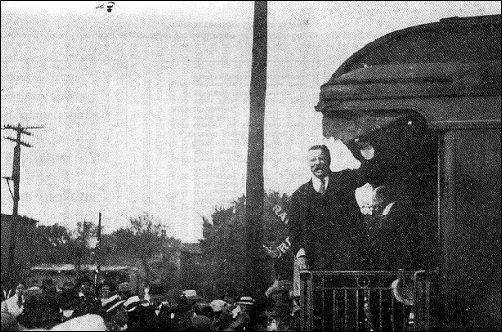Cross-posted from zenpundit.com
The following is a post by seydlitz89, a noted Clausewitzian commentator who has participated in three round tables here at Chicago Boyz, and who wanted to respond to a recent post of mine that discussed strategy and superempowered individuals, a discussion that also involved Joseph Fouche, Charles Cameron and others. For many readers in this corner of the blogosphere who are interested in strategy, Seydlitz should need no introduction, but for those that do:
seydlitz89 is a former US Marine and Army intelligence officer who served in a civilian capacity in Berlin during the last decade of the Cold War. He was involved as both an intelligence operations specialist and an operations officer in strategic overt humint collection and now blogs and posts on the internet and can be contacted at seydlitz89 at web.de. He lives with his family in northern Portugal and works in education. His writings have appeared at Clausewitz.com, Defense and the National Interest, Milpub and on three Chicagoboyz Roundtables.
Politics Requires People (a Response to “War, the Individual, Strategy and the State”)
By seydlitz89, 3 August 2011

I would like to first off thank Zen for this opportunity to guest post on his great blog.
I am essentially a small town Southern conservative who is dissatisfied with both US political parties. I search in vain for a conservative politics worth the name. So my politics are out of the way and any potential ideological influences indicated.
Strategic theory is a means to understand strategic reality (for lack of a better term). There are times when it’s just kind of interesting and times when it can help you literally survive, say if you and your Greek family lived in Smyrna in 1919 and knew that the Greek Army had just landed to fight the Turks, and that the Turks would probably win this war and treat the Greeks in Smyrna none too kindly. You would probably think it prudent to leave the city and go someplace safer, like Athens, Cyprus or Crete. Strategic theory is kind of like that, it provides understanding to events and possibly a general direction those events may take, although it is primarily a tool of military historical analysis. That is future prediction is not really part of the deal, but sometimes the relation between the stated political purpose and the military means available, not to mention the character of the enemy provide such a clear indicator of how events are going to turn out, that it becomes clear either figuratively or even literally that it is time to “get out of town”, so to speak.
Strategic theory uses a system of interlocking concepts which comprise for Clausewitzians Clausewitz’s General Theory of war. The General Theory postulates that there exists a system of common attributes to all wars as violent social interactions and that war belongs to a larger body ofhuman relations and actions known as “politics” (all wars belong within the realm of politics, but not all politics is war). While all wars share these characteristics, warfare, as in how to conduct wars, is very much based on the society and level of technology existing at a specific time. War doesn’t change whereas warfare goes through a process of constant change. Clausewitz’s General Theory need only be flexible enough to adequately understand war and act at the same time as a basis for war planning. It need not be perfect and is not expected to be so. Essentially , it need only be better than the next best theory, and so far we Clausewitzians are still waiting for this second-best theory to make its appearance.
Warfare is thus the specific “art of war” for a particular period ofhuman history, but would have to be compatible (following Wylie) with the General Theory. On War presents at the same time Clausewitz’s General Theory and his art of Napoleonic warfare, that is a theory of warfare for his time, which is one of the reasons readers find the book confusing. As new methods of warfare come into practice, new theoretical concepts emerge. It is one of these potential concepts that this particular paper and the discussion which initiated it is all about, that being the superempowered individual.
I do this by describing what is an ideal type of the superempowered individual.
Read more


 found its own Bush Doctrine, and unsurprisingly, the magnitude of such claims – essentially a declaration of jihad against what is left of the Westphalian state system by progressive elite intellectuals – are beginning to draw fire for implications that stretch far beyond Libya.
found its own Bush Doctrine, and unsurprisingly, the magnitude of such claims – essentially a declaration of jihad against what is left of the Westphalian state system by progressive elite intellectuals – are beginning to draw fire for implications that stretch far beyond Libya.